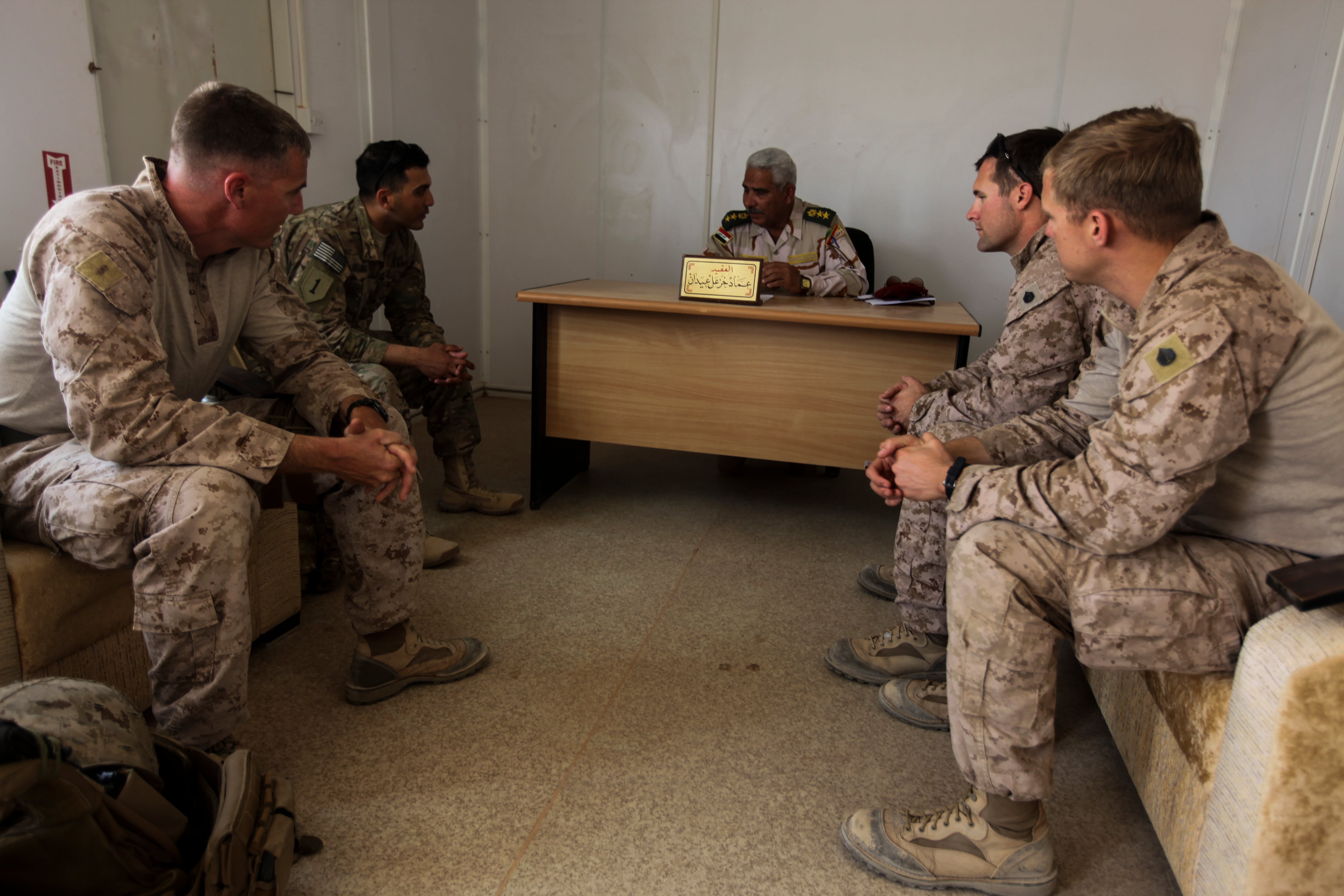As reports of Islamic State group offensives in Iraq dominate headlines, a new Marine unit has quietly arrived in the country to help train and advise Iraqi troops.
A second rotation of the Marines' crisis response force for the Middle East began operations across the region in April, said Col. Jay Bargeron, the commander of Special Purpose Marine Air-Ground Task Force Crisis Response-Central Command, in a Thursday phone interview this month.
But, he added, the unit is no longer training and advising Iraqi security forces, as the previous rotation had done.
While some 320 task force Marines remain at Al Asad air base to conduct perimeter and internal security, for the base, the advisory mission now falls to a dedicated advise-and-assist unit composed of I Marine Expeditionary Force troops out of Camp Pendleton, California.
First 1st Lt. Matthew Gregory, a task force spokesman, for the task force, said the unit is was a composite representing Marines from units across the MEF, with jobs ranging from infantry to administration, who have partnered with the 7th Iraqi Division to provide peer-to-peer advising and infantry training.
He declined to specify the size of the advise-and-assist unit, citing security concerns.
However, the advise and assist teams used by Marines in Afghanistan tended to be small — often company-size or smaller. below.

Marines with the explosive ordnance disposal team attached to Task Force Al Asad meet with an Iraqi colonel and his team to discuss the status of their mission and to request permission to clear a cache of ordnance at Al Asad Air Base, Iraq, in April.
Photo Credit: Cpl. Cansin Hardyegritag/Marine Corps
Bargeron said the handoff of the advisory mission from the task force to the I MEF unit happened had taken place before the prior task force commander, Col. Jason Bohm, had redeployed in April.
"I'm pretty sure it was just that as the mission grew and took on added importance, it was decided that Jason and the special purpose MAGTF commander had enough on his plate already with the other mission sets that he had, and this was going to require on the scene a full-time commander dedicated totally to that mission," he said.
The advisory team is in place for a 12-month rotation, Gregory said. They deployed rapidly, he said, to fill the need, with limited training in advance.
"A traditional training package, with workups and exercises, was not feasible," he said. "The A&A team is comprised of subject matter experts from a variety of [military occupational specialties]. They are there to impart what they know with the Iraqi army and security forces and have years of Marine training to rely on."
Meanwhile, the 2,300-man task force goes on operating continues to operate from six Middle East countries, throughout the Middle East, conducting airstrikes, partnership training and embassy reinforcement.
Bargeron said a task force company remains in place guarding the U.S. Embassy in Baghdad. MV-22B Ospreys from the unit's Kuwait-based squadron regularly take to the air during strikes over Iraq or Syria, standing by so that they can be ready to rescue a downed pilot if something goes wrong, he said.
The unit's F/A-18 Hornets carry out airstrikes on Islamic State group targets multiple times a day.
Marine Commandant Gen. Joseph Dunford has often frequently invoked the task force as an example of a unit executing the kind of distributed operations that reflect make up the Corps' strategy for the future.
He often cites this past Feb. 11 as a milestone date, of this year, when the task force simultaneously conducted operations in six countries — including an embassy evacuation in Yemen — to illustrate the power and reach of the Marine air-ground task force concept.
For the task force troops who remain at Al Asad to provide base security, for the base, Bargeron said procedures had remained unchanged in light of recent Islamic State group offensives, including its successful siege of the town of Ramadi, 70 miles away.
"We haven't increased the numbers, we haven't increased the measures. It was already 100 percent effort out there," he said. "The recent events in Ramadi and elsewhere really didn't make it anymore dangerous in Al Asad. It was already as dangerous as it can be."





